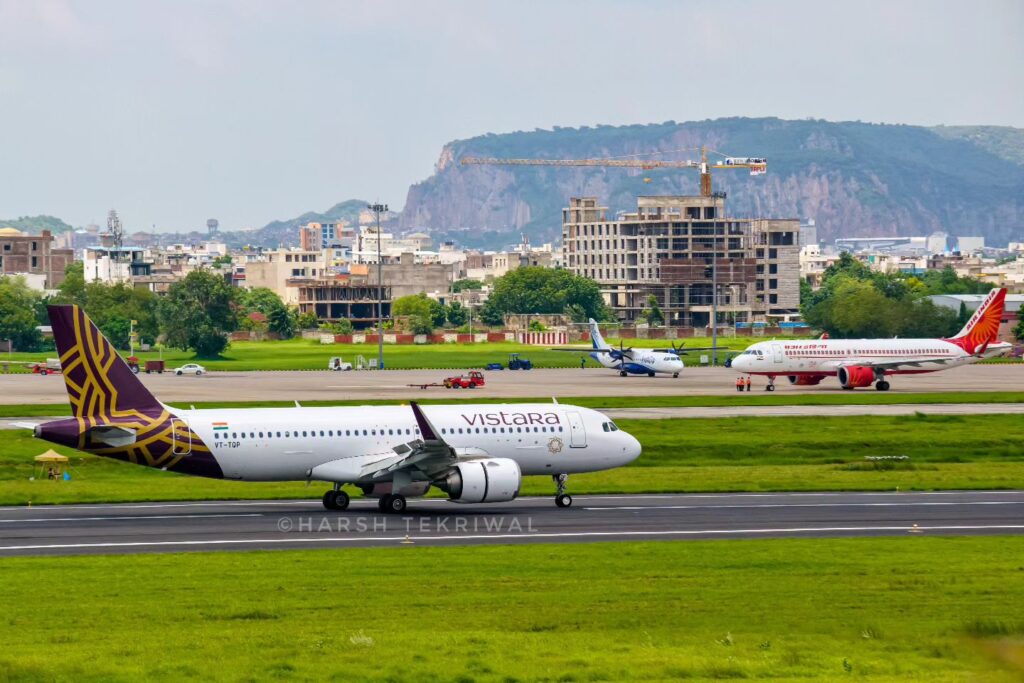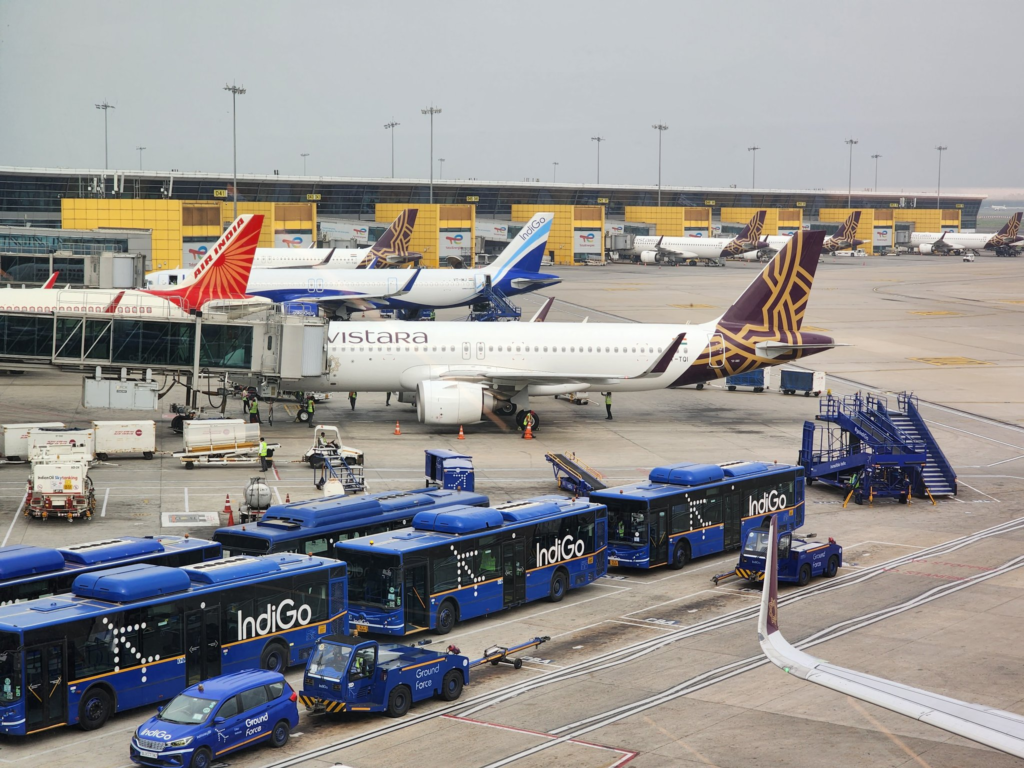DELHI- Fake bomb threats on flights have surged to over 90 in the past week, prompting action from aviation authorities.
Minister of State for Civil Aviation Murlidhar Mohol revealed that the Bureau of Civil Aviation Security (BCAS) and Intelligence Bureau (IB) are actively addressing the issue.

Indian Airlines Bomb Threat
In an exclusive interview with CNBC-TV18, Mohol disclosed that 70-80% of these threats originate from foreign sources. State police are investigating domestically sourced threats.
The minister emphasized the delicate balance between maintaining safety protocols and minimizing passenger inconvenience. “We aim to implement effective safety measures while reducing traveler disruption,” Mohol stated.
To expedite resolution, Mohol confirmed that additional relevant agencies are being enlisted to support ongoing investigations.
IndiGo reported bomb threats against six of its flights on Sunday, emphasizing passenger and crew safety as its top priority. The airline is cooperating with authorities and following security guidelines.
Over 20 flights operated by Indian airlines received bomb threats on the same day, affecting Akasa Air (QP), IndiGo (6E), Vistara (UK), and Air India (AI).
Air India, IndiGo, and Vistara each reported threats to six flights of their flights on Sunday (October 20, 2024).
Akasa Air confirmed security alerts for some of its flights, with emergency response teams monitoring the situation and coordinating with security and regulatory authorities.
This week’s total bomb threats to flights have surpassed 90, with most proving to be hoaxes.
In response to the surge in threats, the Civil Aviation Ministry plans to implement stricter regulations to deter hoax bomb threats. These measures may include adding perpetrators to the no-fly list.

High-Level Meeting
The Bureau of Civil Aviation Security (BCAS) convened a meeting with airline CEOs at the civil aviation ministry’s Rajiv Gandhi Bhawan on Saturday (October 19, 2024).
Officials briefed the executives on Standard Operating Procedures (SOPs) for handling threats that cause passenger distress and financial losses to airlines through flight diversions, cancellations, and rescheduling.
Investigations have traced the Internet Protocol (IP) addresses of recent threats to London, Germany, Canada, and the United States. However, sources indicate that Virtual Private Networks (VPNs) may have been employed to conceal the actual locations of some perpetrators.
The meeting aimed to address the surge in bomb threats targeting Indian airlines, which have disrupted operations and raised security concerns across the aviation sector. By implementing robust SOPs, authorities seek to mitigate the impact of these threats on both passengers and airline operations.
The international origin of many threats presents a challenge for law enforcement, requiring cooperation with foreign agencies to identify and apprehend those responsible. The use of VPNs adds complexity to the investigation, as it obscures the true source of the threats.
Stay tuned with us. Further, follow us on social media for the latest updates.
Join us on Telegram Group for the Latest Aviation Updates. Subsequently, follow us on Google News

